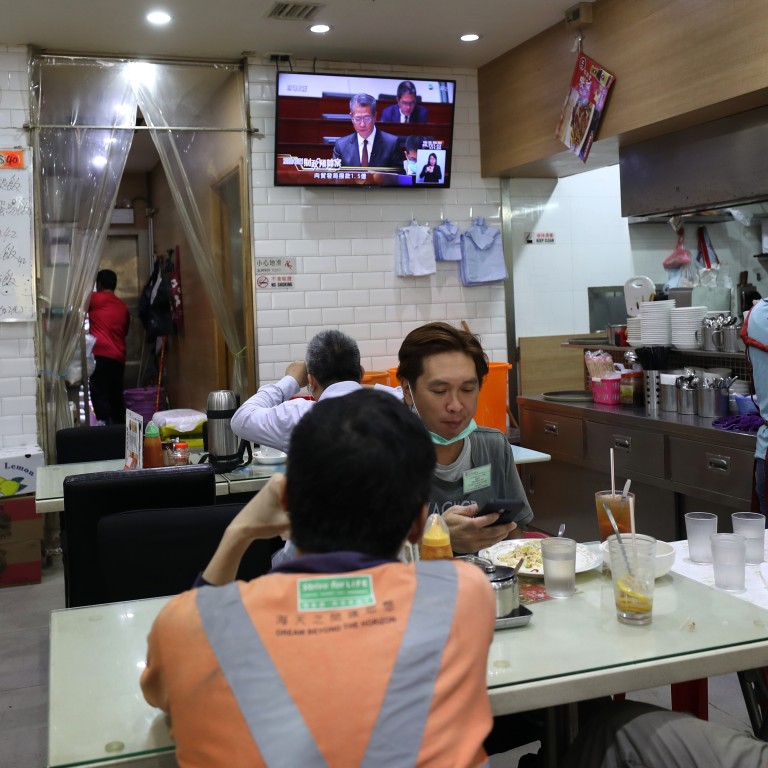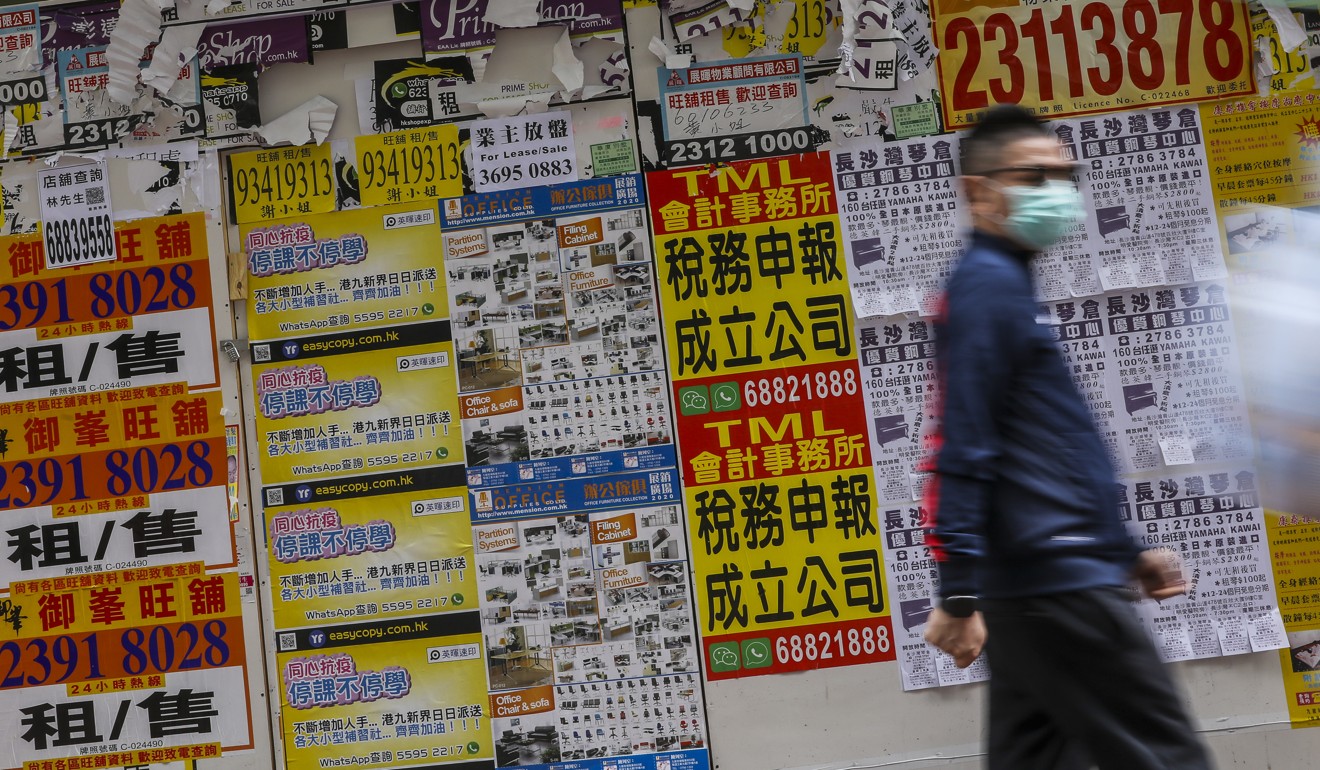
Hong Kong budget: city to pump HK$22 billion into private equity fund, as finance chief predicts economy will slow over next four years
- Hong Kong Growth Portfolio will be similar to Singapore’s sovereign fund
- Cash will be invested in companies and projects related to the city
Hong Kong is to pump HK$22 billion into a new private equity fund geared towards the city’s future in anticipation the economy will slow in the next four years, the first time it has taken such a step.
The cash will be put into the Hong Kong Growth Portfolio, and will see fund managers invest in companies, projects and funds with a Hong Kong nexus. It is similar in nature to Temasek, Singapore’s sovereign fund.
In his budget speech on Wednesday, Financial Secretary Paul Chan Mo-po forecast gross domestic product growth would average at 2.8 per cent annually from 2021/22 to 2024/25 on the backdrop of external economic uncertainties. That is below the average annual rise of 2.9 per cent over the past decade.
He expected the GDP would range from 0.5 per cent growth to 1.5 per cent decline this year on the back of the coronavirus epidemic, the US-China trade war, and the legacy of the anti-government protests. Last year’s GDP contracted 1.2 per cent.
Chan doubled the package of sweeteners – mostly non-recurring – to HK$120 billion from last year, which a government source said would generate 3 per cent growth in GDP and help cushion the economic downturn.
“Entering 2020, the rapid spread of the novel coronavirus has dealt a severe blow to economic activities and sentiment in Hong Kong,” the source said. “We must make good use of the Future Fund to continuously invest for the future of Hong Kong.”
Chief Executive Carrie Lam Cheng Yuet-ngor said fresh growth engines were needed to help plug deficits over the next few years.
Based on suggestions from business leaders, such as Victor Fung Kwok-king, group chairman of Li & Fung Group, Peter Wong Tung-shun of HSBC, professor Lawrence Lau Juen-yee and Norman Chan Tak-lam, former chief executive of the Hong Kong Monetary Authority, the government will use 10 per cent of the HK$224.5 billion Future Fund. The 2016 fund was aimed at investing its fiscal reserve to offset rising expenditure.
Hong Kong poised for property crisis as borrowers slide into negative equity
This is the first time the government has set up a private equity fund within its reserve, with the Future Fund at present managed under the monetary authority’s Exchange Fund, the reserve used to defend the Hong Kong-US dollar peg from short-sellers.
The portfolio is discouraged from investing in any real estate companies and projects in its initial mandate.
A government source said the investments would include innovation and technology companies and projects with high growth potential and return.
Aligned with the Future Fund, the portfolio’s investment returns are required to be higher than that of the Exchange Fund. Chan revealed that the Future Fund’s composite rate of return stood at 4.5 per cent in 2017, 9.6 per cent in 2018 and 6.1 per cent in 2019.
“The private equity fund takes a long-term investment strategy, from investment to harvest, it will take five to seven years,” the source said.

Agnes Chan, managing partner of Hong Kong and Macau operations of Ernst and Young, welcomed the planned portfolio and fresh initiatives to diversify the economy.
“It is in the right direction for new sources of growth,” she said. “My concern is high return or high growth investments are associated with start-ups, which are of higher risk. So precautions on choices of investments are needed.”
Chan said the government should step up IT development as a priority.
Deloitte China tax partner Sarah Chan said the government should review the prospect of broadening its tax net to revive the economy, while making good use of the fiscal reserve.
The financial services sector, as one of the city’s four pillar industries, is to be strengthened with HK$66 billion worth of green bonds to be issued in the next five years. A minimum of HK$13 billion worth of inflation-linked retail bonds, known as iBonds and silver bonds, will be issued.
Health bosses get HK$970 million cash injection to fight coronavirus
To boost the ecosystem of private equity funds, tax concessions will be offered to issuers and those funds which want to operate or domicile in the city.
In terms of IT development, HK$3 billion will be earmarked for the second phase of tech hub Hong Kong Science Park at Pak Shek Kok.
The government will raise its funding ratio under a popular funding programme called Technology Voucher Programme from two-thirds to three-fourths, and raise the funding ceiling from HK$400,000 to HK$600,000.

